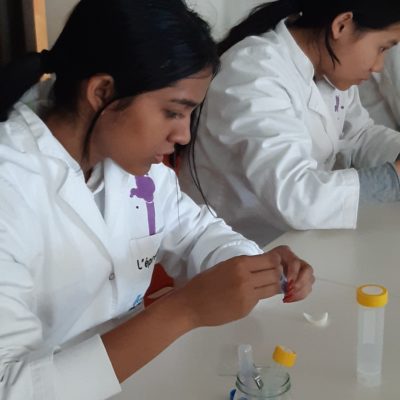Group 3 - Individuals and Societies a
Economics (SL/HL) (in English)
Economics is a dynamic subject which should be updated according to the daily changes that allows students to develop an understanding of the complexities and interdependence of economic activities in a rapidly changing world. It analysis the need of accurate allocation of the limited resources for unlimited needs and wants considering the whole well-being of the society. The main problem in economics is how to manage scarcity and how to give the right decisions and making the right choices considering the opportunity cost of all scarce resources and the effects of the outcomes.
The DP economics course, at both SL and HL, uses economic theories to examine the ways in which these choices are made:
- at the level of producers and consumers in individual markets (microeconomics)
- at the level of the government and the national economy (macroeconomics)
- at an international level where countries are becoming increasingly interdependent through international trade and the movement of labour and capital (the global economy).
The choices made by economic agents (consumers, producers and governments) generate positive and negative outcomes and these outcomes affect the relative living standards of the individuals and societies. Efficiency, sustainability and equity are also vital concepts that are used in case studies and in the theory part.
For the internal assessment, both standard level and higher level candidates are required to produce a portfolio of three commentaries based on published extracts from the news media using the key concepts as a lens. In addition, for the external assessment, there are two examinations for standard level students and three examinations at higher level.
Business Management (SL/HL) (in English)
The business management course is designed to build students’ knowledge and understanding of business management theories, as well as their skills to utilize a range of tools and techniques.
Students learn to analyse, discuss and evaluate business activities at local, national and international levels. The course covers a range of organizations from all sectors, as well as the socio-cultural and economic contexts in which those organizations operate.
The course covers the key characteristics of business organization and environment and the business functions of human resource management, finance and accounts, marketing and operations management. Through the exploration of six underpinning concepts (change, culture, ethics, globalization, innovation and strategy), the course allows students to develop a holistic understanding of today’s complex and dynamic business environment. SL students are focused more on general topics and HL students have to more concentrate on analytical skills. Both groups learn to create and be innovative in the global world. A business internal assessment is a written commentary which includes analyzing a real company and its needs and finding some solutions to the company’s problem. Methods of research for analyzing such a company is also taught throughout the course. Paper one is based on a pre-seen case study issued in advance, and paper two consists of structured questions based on stimulus material and an extended response question that assesses students’ understanding of the key concepts of the course.
History (SL/HL) (in English)
IB History in both Standard and Higher Levels asks students to consider the historical events of the syllabus – not as factual narrative, but more as a basis on which to put forward the own opinions on history, justified with historical fact. Rather than relating the events that led up to a certain event, they might be asked to evaluate the various factors in terms of importance, or to challenge a popular opinion – always using historical facts to support their arguments. The emphasis is thus less on what is known, but more on how that knowledge can be used to form opinions. The focus is less on History itself, but the application of History and what we can learn from it. The course focuses on Twentieth Century wars, the conditions that brought them about and their consequences.
Also available via Pamoja, a learning platform recognised by the IB
- Information Technology in a Global Society (ITGS) (SL/HL) (in English)
- Psychology (SL/HL) (in English)
- Philosophy (SL) (in English)








